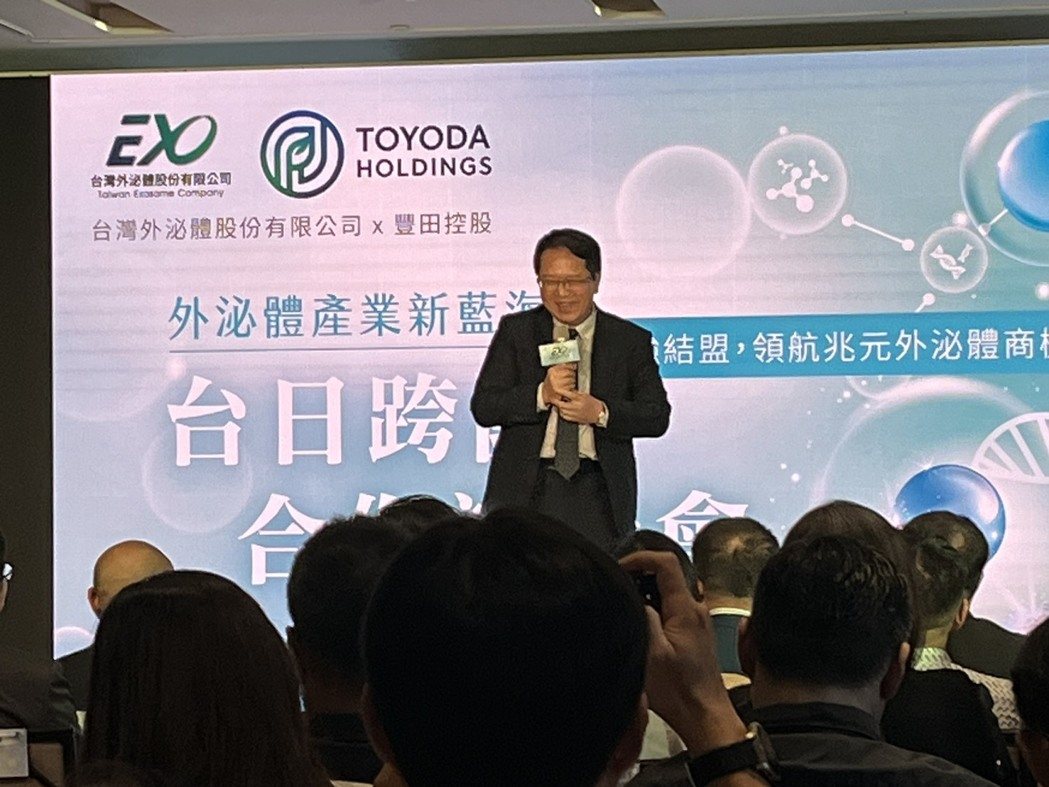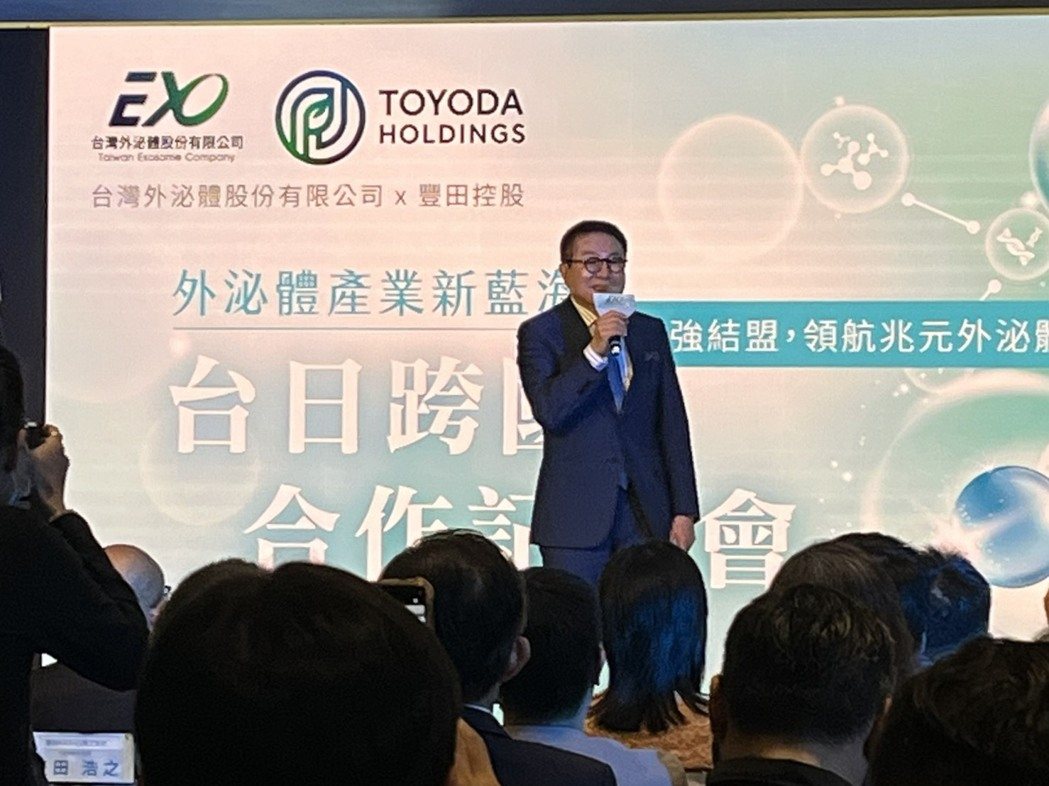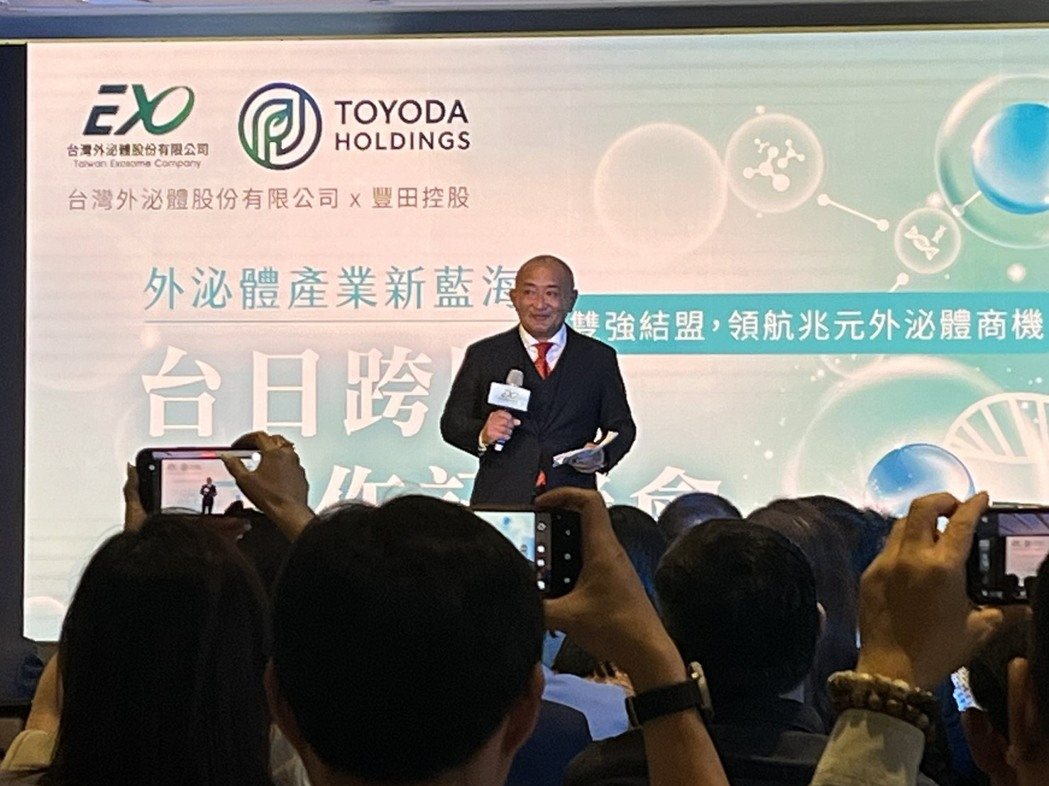2025/10/16
Editorial Column
Industry Growth Spurs Legislator Chiu Chih-Wei to Propose an 'Exosome Shield,' Urges Regulatory Easing
The exosome industry is flourishing. According to international research institutions, the global exosome market reached USD 4.58 billion in 2024 and is expected to grow to USD 24.1 billion by 2034. Domestic industry leaders note that Taiwan has advantages in R&D capacity, international collaboration, and policy support, giving it the potential to make the exosome and biomedical industries part of the nation’s "Protective Mountain Range"—a term referring to Taiwan’s core industries. Legislator Chiu Chih-Wei stated that the development of the exosome industry requires regulatory relaxation and pledged to urge the Executive Yuan to propose immediate and effective deregulation measures to help the exosome industry shine on the global stage and become an “Exosome Shield.”
With the implementation of the Regenerative Medicine Act and the government’s “Healthy Taiwan” initiative, the biotechnology industry’s output value reached a record high of NT$1.47 trillion in 2023. Former legislator and Chairman of Taiwan Exosome Corporation (TEC), Hung Chi-Chang, said that Taiwan possesses strengths in policy support, R&D capability, and international cooperation. Combined with outstanding local talent in medical information and research, and collaboration among institutions such as the National Health Research Institutes, Academia Sinica, and major medical universities, Taiwan’s biotech industry can become another “National Protective Mountain Range” alongside TSMC.
Chiu Chih-Wei emphasized that the President’s policy goal of achieving national health makes the medical and high-end skincare industries particularly important. Exosomes can serve as the “locomotive” driving this effort. Having served on the Legislative Yuan’s Economic Committee for many years, Chiu expressed strong concern for industrial development. He noted that Taiwan has abundant talent in medicine, research, engineering, and basic science, enabling the exosome industry to scale and commercialize effectively. “If Taiwan’s semiconductor industry, led by TSMC, is our ‘Silicon Shield,’ then the power of the exosome industry can become our ‘Exosome Shield,’ helping Taiwan shine on the world stage,” he said.
Former Executive Director of the Center for Drug Evaluation (CDE), Lin Shih-Yi, stated that as the exosome industry moves toward commercialization, efficacy will inevitably become the focus. From the government’s perspective, human trials will be required. The Ministry of Health and Welfare’s Food and Drug Administration (TFDA) is currently drafting regulations for human clinical trials. Lin noted that, given the strength of Taiwan’s biotech industry, compliance should not pose major challenges. Should difficulties arise, the authorities can provide project-based guidance to promising companies, accelerating product development and completion of required regulatory trials.
“The exosome industry should expand its blue ocean and become a global leader—another Protective Mountain Range for Taiwan,” said Chiu Chih-Wei. To support the development of the exosome industry, he stressed that the government must demonstrate determination to relax regulations, including testing models and cross-border sales rules. Proactive regulatory reform and forward-looking strategies are essential for international competitiveness. Chiu said he would urge the Executive Yuan to prioritize exosome-related issues and ask the Ministry of Economic Affairs to present concrete measures to help the industry leverage its strengths and shine globally.
Taiwan Exosome Corporation (TEC) today announced that it has jointly established “Japan Exosome Co., Ltd.” with Toyota Holdings of Japan to collaborate in developing regenerative medicine. Hung Chi-Chang stated that the company name was officially registered in Japan earlier this year, and the first base has been selected in Kumamoto Prefecture, where TSMC operates. The partnership will later expand to Tokyo and other regions.

Legislator Chiu Chih-Wei stated that the development of the exosome industry requires regulatory relaxation. He will urge the Executive Yuan to propose immediate and effective deregulation measures to help the exosome industry shine on the international stage and become an “Exosome Shield.” Photo by reporter Lin Tsung-En.

Chairman of Taiwan Exosome Corporation (TEC), Hung Chi-Chang, said that Taiwan has strengths in policy support, R&D capability, and international cooperation. Combined with excellent local talent, the biotech industry in Taiwan can become another “Protective Mountain Range” alongside TSMC. Photo by reporter Lin Tsung-En.

Taiwan Exosome Corporation (TEC) announced today that it has jointly established “Japan Exosome Co., Ltd.” with Toyota Holdings of Japan to collaborate on regenerative medicine development. Pictured: Toyota Holdings President Hiroyuki Toyota. Photo by reporter Lin Tsung-En.
With the implementation of the Regenerative Medicine Act and the government’s “Healthy Taiwan” initiative, the biotechnology industry’s output value reached a record high of NT$1.47 trillion in 2023. Former legislator and Chairman of Taiwan Exosome Corporation (TEC), Hung Chi-Chang, said that Taiwan possesses strengths in policy support, R&D capability, and international cooperation. Combined with outstanding local talent in medical information and research, and collaboration among institutions such as the National Health Research Institutes, Academia Sinica, and major medical universities, Taiwan’s biotech industry can become another “National Protective Mountain Range” alongside TSMC.
Chiu Chih-Wei emphasized that the President’s policy goal of achieving national health makes the medical and high-end skincare industries particularly important. Exosomes can serve as the “locomotive” driving this effort. Having served on the Legislative Yuan’s Economic Committee for many years, Chiu expressed strong concern for industrial development. He noted that Taiwan has abundant talent in medicine, research, engineering, and basic science, enabling the exosome industry to scale and commercialize effectively. “If Taiwan’s semiconductor industry, led by TSMC, is our ‘Silicon Shield,’ then the power of the exosome industry can become our ‘Exosome Shield,’ helping Taiwan shine on the world stage,” he said.
Former Executive Director of the Center for Drug Evaluation (CDE), Lin Shih-Yi, stated that as the exosome industry moves toward commercialization, efficacy will inevitably become the focus. From the government’s perspective, human trials will be required. The Ministry of Health and Welfare’s Food and Drug Administration (TFDA) is currently drafting regulations for human clinical trials. Lin noted that, given the strength of Taiwan’s biotech industry, compliance should not pose major challenges. Should difficulties arise, the authorities can provide project-based guidance to promising companies, accelerating product development and completion of required regulatory trials.
“The exosome industry should expand its blue ocean and become a global leader—another Protective Mountain Range for Taiwan,” said Chiu Chih-Wei. To support the development of the exosome industry, he stressed that the government must demonstrate determination to relax regulations, including testing models and cross-border sales rules. Proactive regulatory reform and forward-looking strategies are essential for international competitiveness. Chiu said he would urge the Executive Yuan to prioritize exosome-related issues and ask the Ministry of Economic Affairs to present concrete measures to help the industry leverage its strengths and shine globally.
Taiwan Exosome Corporation (TEC) today announced that it has jointly established “Japan Exosome Co., Ltd.” with Toyota Holdings of Japan to collaborate in developing regenerative medicine. Hung Chi-Chang stated that the company name was officially registered in Japan earlier this year, and the first base has been selected in Kumamoto Prefecture, where TSMC operates. The partnership will later expand to Tokyo and other regions.

Legislator Chiu Chih-Wei stated that the development of the exosome industry requires regulatory relaxation. He will urge the Executive Yuan to propose immediate and effective deregulation measures to help the exosome industry shine on the international stage and become an “Exosome Shield.” Photo by reporter Lin Tsung-En.

Chairman of Taiwan Exosome Corporation (TEC), Hung Chi-Chang, said that Taiwan has strengths in policy support, R&D capability, and international cooperation. Combined with excellent local talent, the biotech industry in Taiwan can become another “Protective Mountain Range” alongside TSMC. Photo by reporter Lin Tsung-En.

Taiwan Exosome Corporation (TEC) announced today that it has jointly established “Japan Exosome Co., Ltd.” with Toyota Holdings of Japan to collaborate on regenerative medicine development. Pictured: Toyota Holdings President Hiroyuki Toyota. Photo by reporter Lin Tsung-En.
